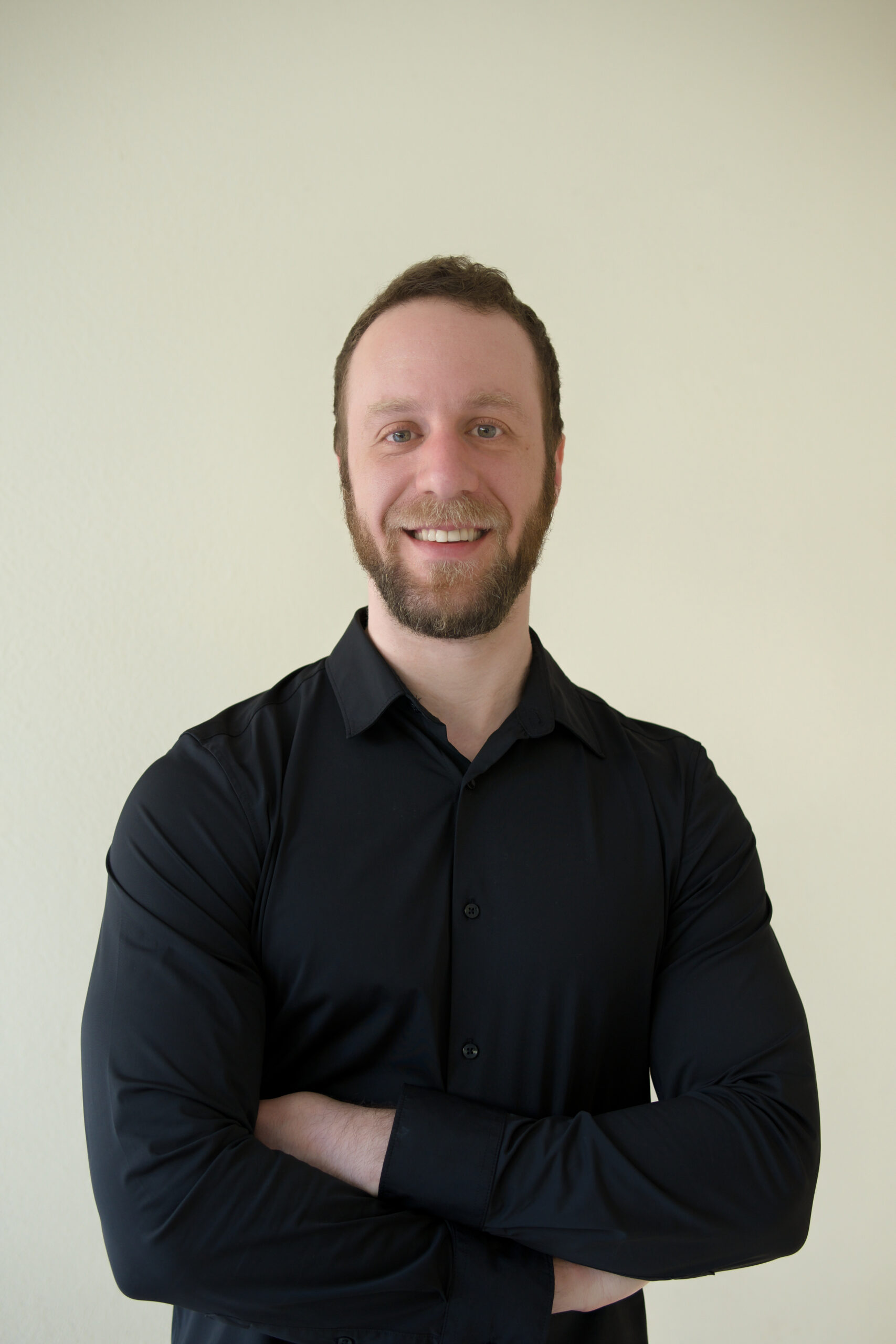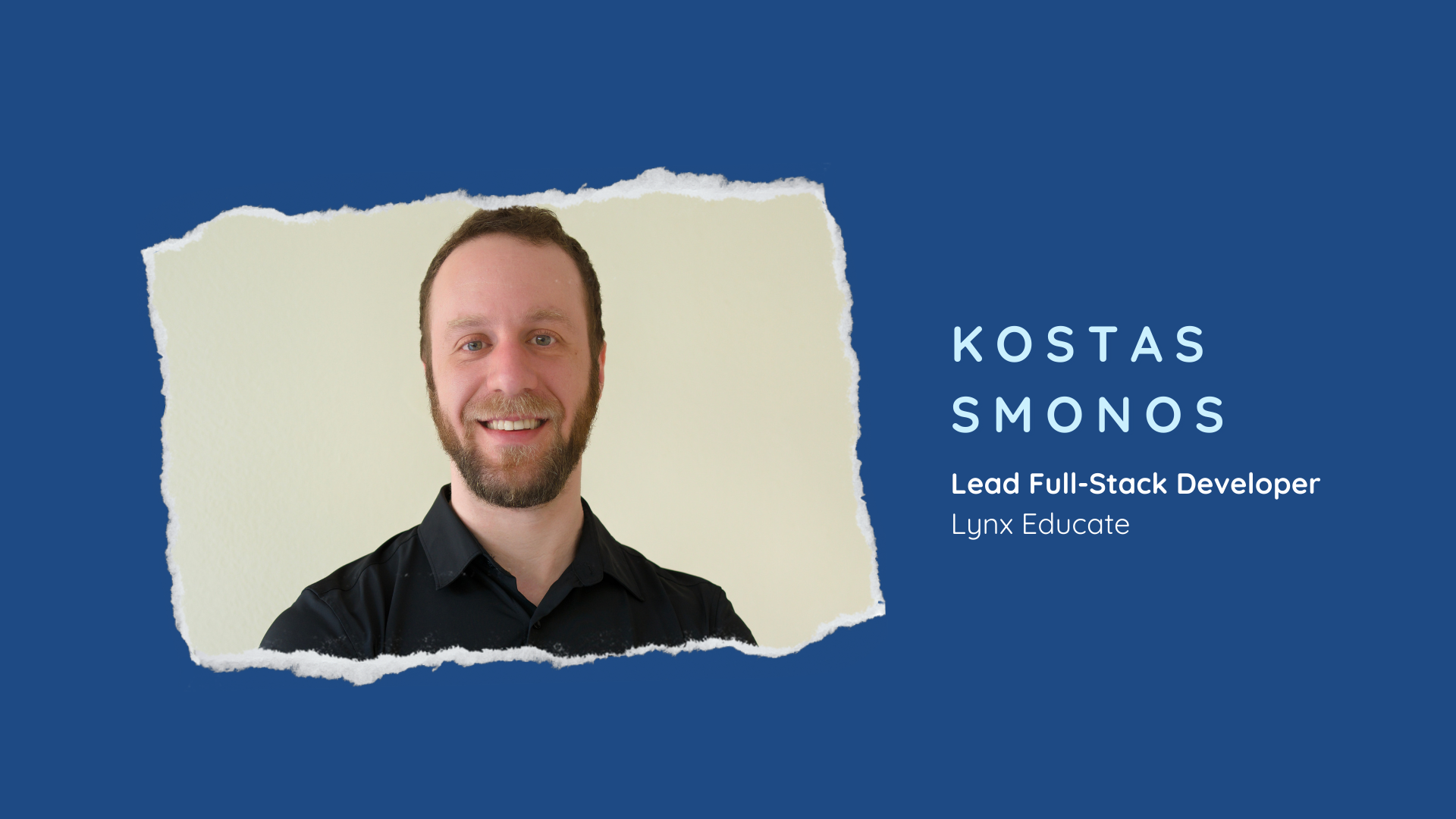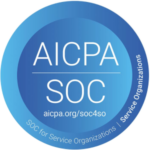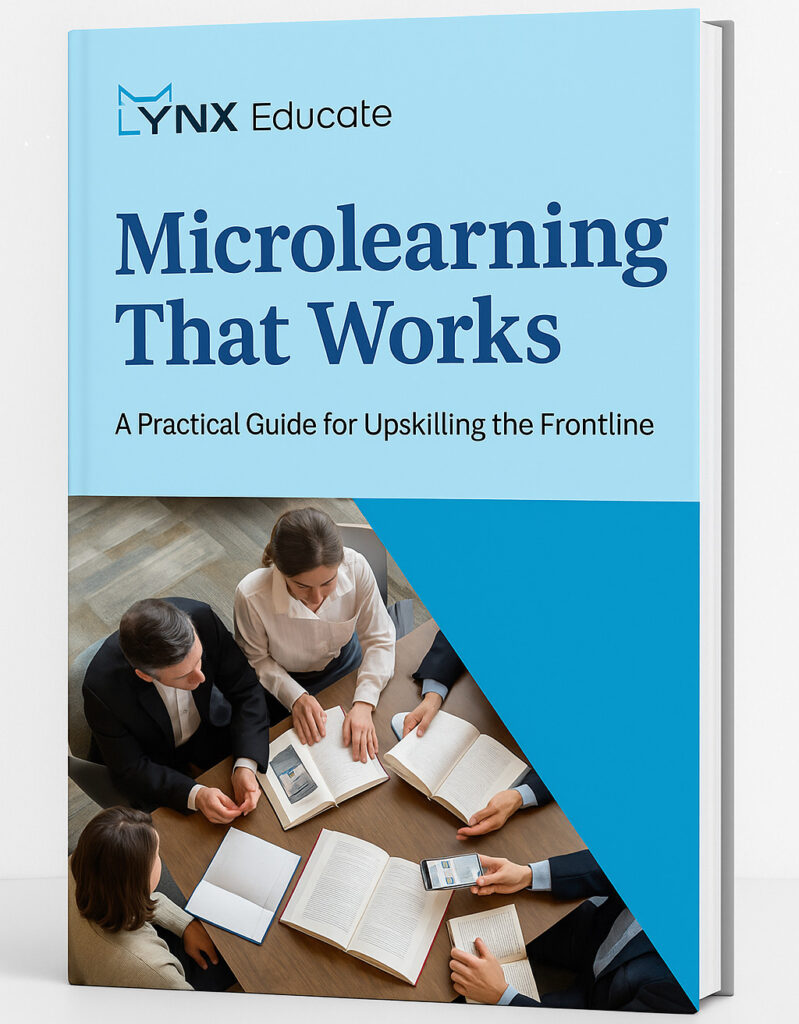Kostas Smonos is the face behind the code behind the Lynx product. In this Lynx Spotlight, he shares how he sees the future of EdTech — from an engineer’s perspective.
Can you briefly introduce yourself?
My name is Kostas Smonos. I am from Athens, Greece and I have been working with Lynx Educate as our Lead Full-Stack Developer since mid-2023.
I have always been deeply fascinated by all aspects of technology. The ongoing challenge of engineering solutions to real-world problems and exploring emerging technologies is most exciting and inspiring to me.
Besides programming I also enjoy playing music, exploring new places while traveling, and reading books or articles on my favorite topics.

What made you join the Lynx team? Why Lynx?
The opportunity to join Lynx was particularly compelling because it allowed me to work on a fresh, cutting-edge project that has a strong focus on education. As a firm believer in continuous personal growth, the company’s vision resonated deeply with me from the beginning. Additionally, working in a multi-cultural environment that focuses on open communication really creates a motivating and innovative workspace where new ideas can thrive.
Much of your work involves taking ideas and tangibly realizing them. As you develop the Lynx product, what are some major pillars that guide your work?
My work within the Lynx Product Team is fundamentally guided by a user-centric design philosophy. Developing new features requires a deep understanding and anticipation of our users’ needs to ensure the product is not only functional but also intuitive and accessible. Placing the user experience at the forefront is always key to creating solutions that can deliver the maximum value.
Additional core aspects of our process are scalability and continuous improvement. It is crucial that the Lynx product can adapt and scale efficiently as it expands along with its growing user base.
The tech space is continuously iterating, especially with the advent and broader adoption of AI. What major trends have you seen in the world of EdTech in particular? Where, in your opinion, is the future headed?
Recent breakthroughs in AI technologies are significantly reshaping how educational content is delivered and personalized for learners. One of the major trends I’ve observed is the growing emphasis on adaptive learning platforms: systems that leverage AI to tailor educational experiences for users.
With the landscape of technology evolving at such a quick pace, it is hard to predict the development of new interfaces or the future standards of a good UX, but it is safe to bet that AI will play a big part. I believe the future of EdTech will increasingly prioritize accessibility and inclusivity, ensuring that educational opportunities are available to all.
Regarding the impact of emerging technologies on the EdTech landscape, one particularly exciting prospect for me is the integration of AI models with augmented reality (AR) capabilities – a synergy that seems to have significant promise for transforming educational experiences.
If you could wake up tomorrow having gained one new skill, what would it be — and why?
A skill I’d love to instantly master (though it encompasses several skills) is exceptional public speaking. I’m always fascinated by speakers who can deliver complex presentations with clarity and inspire their audience.




